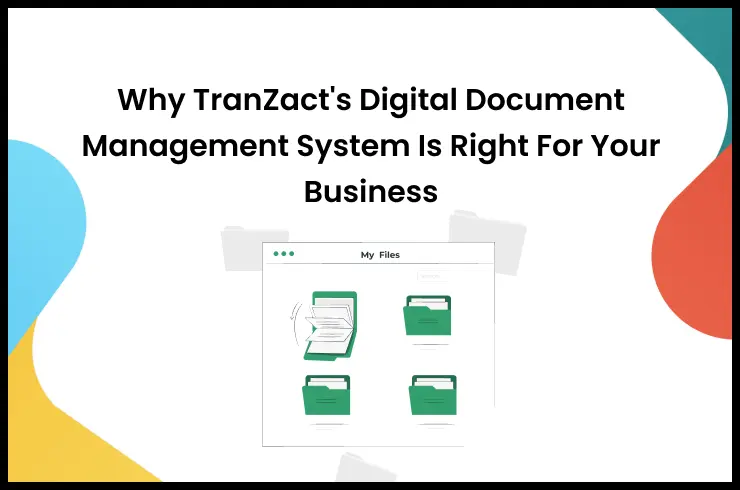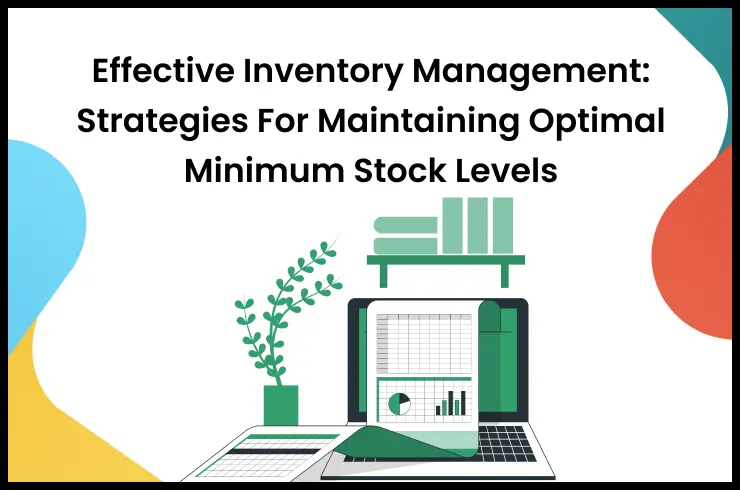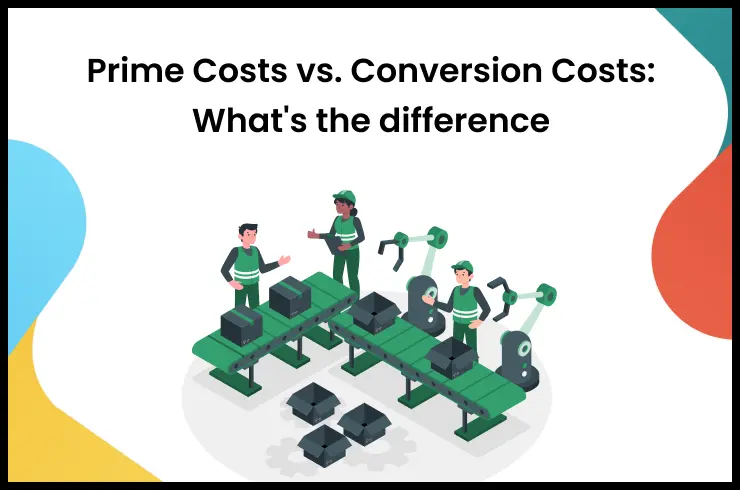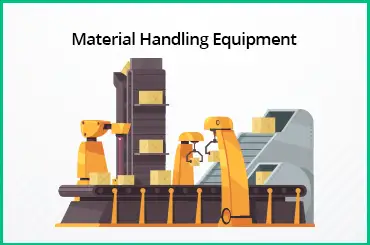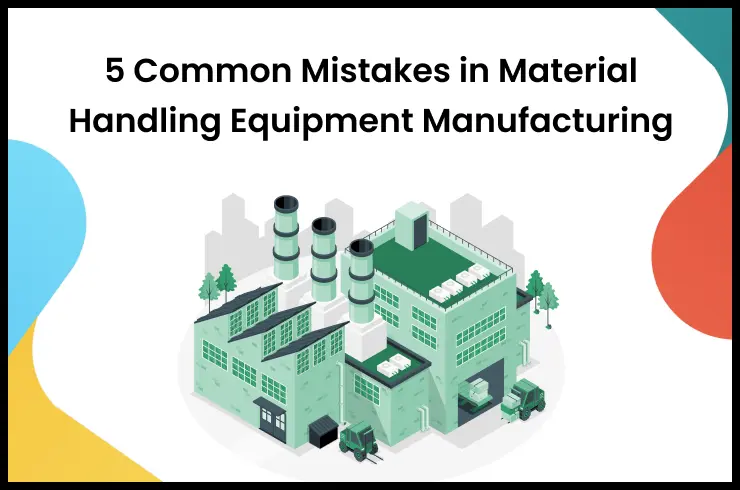Industry 4.0 has revolutionized manufacturing businesses, whether large or small. It helps SMEs to automate and optimize manufacturing processes. Whether it is maintaining stock levels, monitoring processes, or documentation, Industry 4.0 for SMEs automates everything and increases transparency.
Implementing Industry 4.0 in manufacturing industries is important to stay relevant in the market by improving inventory accuracy, purchase management, production planning, and order fulfillment. It helps you use your resources for maximum output, reduce waste, increase efficiency, and comply with rules and regulations.
In How Industry 4.0 Is Transforming Manufacturing Industry, we have learned about the evolution of industrial revolutions from Industry 1.0 to Industry 4.0. We also learned about the impact of Industry 4.0 and core technologies that are transforming manufacturing industries.
In this blog post, we will learn more about the transformation of manufacturing industries with Industry 4.0. We will also know the challenges you may face in implementing Industry 4.0. We will further suggest the best practices to overcome these challenges and successfully implement Industry 4.0 in your manufacturing business.
Industry 4.0 Manufacturing Technologies
Industry 4.0 technologies meaning the integration of automation tools and software that can support smart manufacturing. You can implement manufacturing 4.0 technologies to generate quotations for your customers, collect data from devices for capacity planning, and avoid disruptions in the supply chain. Let’s understand it better by looking at industry 4.0 technologies examples.
1. The Internet Of Things (IoT)
A network of interconnected devices using the internet is known as the Internet of Things. These interconnected devices are used to collect and analyze data. IoT sensors helps you predict equipment failure so that you can repair them on time. Predictive maintenance helps you reduce downtime and operational costs. It helps you plan your production effectively with data-driven information.
2. Artificial Intelligence (AI)
Artificial intelligence is equipped with algorithms and machine learning capabilities that perform tasks with accuracy and faster. You can use AI to analyze large data and inspect products in real time to maintain their quality standards. You can also use AI to predict future demands according to market trends and customer preferences. It can help you reduce errors in repetitive and routine tasks and increase overall productivity.
3. Cloud Computing
Cloud computing allows you to access data from storage or software by using the internet. It offers you the flexibility to operate your operations from different locations and run your business without interruption. It helps you collaborate with your in-house team and suppliers in real-time to increase visibility over the supply chain. It saves you money as you don’t need to install expensive hardware for data storage purposes.
4. Blockchain Technology
Blockchain technology is one of the widely used industry 4.0 solutions in manufacturing industries. It helps you monitor the movement of products within your industry and supply chain. It helps you increase transparency and improves your production processes. It allows you to maintain the quality of products and improve order management. It also helps you secure the data that can cause losses if it leaks.
5. Augmented Reality (AR) And Virtual Reality (VR)
Augmented Reality is a technology that adds digital information, whether images or videos, to the real world. You can use AR glasses or smartphones to see your surroundings along with virtual elements. On the other hand, Virtual reality is a technology that creates a digital environment, and you can interact with it by using a VR headset. These 4th industrial revolution technologies help you train your employees and guide them through complex repairs. They also help you speed up repair processes and reduce downtime.
Challenges In Industry 4.0 Adoption And Implementation
Many industry 4.0 software solutions are available for different purposes for large, small, and medium enterprises. However, adopting and implementing industry 4.0 solutions can also create various challenges to fulfill your specific requirements. Let’s learn about these industry 4.0 challenges and solutions to fulfill your specific requirements.
1. Implementation Challenges
You may face various challenges in Industry 4.0 implementation that you have to overcome. Knowing these challenges will help you prepare and adopt these technologies. Here are the challenges you should know when implementing Industry 4.0 technologies.
Installation & Maintenance Cost: Installation costs are a challenge because many software are expensive. Many software also require maintenance costs on a monthly or yearly basis, which can also be a concern. You should calculate the profits of implementing these technologies to understand their benefits. This can be a big challenge especially for small businesses.
Downtime: The implementation of Industry 4.0 in your industry may disrupt your current processes. If the implementation of Industry 4.0 software causes downtime for longer periods, it can cause production delays. Due to this downtime, you may not fulfill orders on time, which can cause a loss for your business. You should get software solutions that do not disturb your current process or implement them when there is already downtime.
Integration Compatibility: Integrating Industry 4.0 technologies with your existing systems can be challenging when implementing them in your industry. Old technologies, usually known as legacy systems, do not support integration with advanced technologies. You should get software solutions that can fulfill the needs of legacy systems as well when you are planning to replace them.
Cybersecurity: Cybersecurity concerns like data leaks are a challenging factor when implementing Industry 4.0. Cybercriminals can also try to hack your systems, and if they succeed, they can demand money to return your data. You should get advanced technological solutions that offer high-quality security and require multi-level authentication to operate.
2. Adoption Challenges
You may face various challenges in industry 4.0 adoption that you have to overcome if you want to scale your business. You should be aware of these challenges and prepare to overcome them.
Resistance To Change: Many people do not trust technologies and are happy with manual methods even if they cause a loss for their business. If you resist changing your traditional processes, it can make it difficult to adopt Industry 4.0 in your industry. You should understand that you cannot run your business without technology in this era to overcome this challenge.
Skill Gap In Employees: The skill gap in your employees can be a major challenge in the adoption of Industry 4.0. Many software require advanced technical knowledge to operate them. If your employees are unable to operate Industry 4.0 technologies, then you cannot gain their benefits. You should train your employees to improve their skills so that they can operate these technologies based on your requirements.
Uncertainty Of Return On Investments (ROIs): When you are uncertain of the return on investments, it can be a challenge in the adoption of Industry 4.0. Since you need to invest in installation, maintenance, and employee training to adopt Industry 4.0, It is a genuine concern. You should calculate the profits and study some case studies to understand how Industry 4.0 solutions for SMEs increase ROIs.
Role Of Industry 4.0 System Integration
The role of Industry 4.0 system integration is very important because it makes sure that machines and systems coordinate and collaborate to improve production processes. It improves data flow and allows you to identify potential issues and modify processes in real-time. It helps you streamline manufacturing processes and reduce disruptions. 4.0 system integration also allows you to increase production speed if you get rush orders and helps you increase efficiency and productivity.
Strategies For Successful Adoption Of Industry 4.0 Technologies
Here are some steps and strategies that can help with the successful adoption of Industry 4.0 technologies.
- Conduct thorough research and identify areas in your manufacturing processes that need to be improved. Set goals that you want to achieve by implementing Industry 4.0.
- Hold meetings with all stakeholders and get opinions on the technologies to adopt that can be useful in the long term.
- Invest in the training of your employees to increase their skills. Be open to the changes and hurdles during implementation.
- Monitor your performances and requirements for continuous improvement.
Best Practices For Implementing Industry 4.0
It is important for you to follow the best practices to avoid spending too much and implementing technologies that you don’t need. Here are the best practices that you can follow to implement Industry 4.0 and fulfill your specific requirements.
- Identify your unique requirements and choose a software solution accordingly.
- At the beginning of implementing Industry 4.0 technology, choose one process and check how it improves that process.
- Select easy-to-use software to implement that can be operated with basic skills.
- Train your employees to use the collected data to maximize efficiency.
- Get cloud-based software solutions to operate your business from different locations.
- Get industry 4.0 software solutions that offer customizable features.
- Implement security measures to secure your valuable data.
- Upgrade your software from time to time to make your business smart with full automation.
Industry 4.0 Solutions For Small And Medium-Sized Enterprises (SMEs)
Industry 4.0 solutions for small and medium-sized enterprises (SMEs) allow you to use them for specific requirements. Large industries usually implement solutions like ERP that offer many features that you may not need if you own an SME. Here are some Industry 4.0 solutions for SMEs that you can implement for specific operations.
- Inventory management software that can help you track your stock levels in real time and help you avoid overstocking and stockouts.
- Production planning software that helps you organize your processes in proper order to reduce manufacturing lead time and increase efficiency.
- Material resource planning software that helps you calculate materials in the right quantities you need to achieve your production targets.
- Purchase order software that helps you restock inventory at the right time and tracks your purchase orders and invoices.
Benefits Of Industry 4.0 For Small And Medium Enterprises (SMEs)
Industry 4.0 makes SMEs capable of competing with the large industries in the market and scale their businesses. Here are the key benefits of Industry 4.0 for small and medium enterprises.
1. Reduced Waste
Industry 4.0 technologies help you utilize your resources, whether workers or machines, for maximum output. These technologies help you analyze the strengths of your workers and machines and suggest you distribute work accordingly. These technologies also help you identify time-consuming processes and improve them. All of these contribute to reducing waste of resources and time.
2. Easy Document Management
Document management is a very important part of manufacturing industries. Industry 4.0 technologies make document management easy, whether for data entry, record-keeping, or GST compliance. It is helpful to run your business according to the rules and regulations of the government and avoid legal issues. It is also helpful to avoid misunderstandings with your suppliers and customers.
3. Better Inventory Management
Industry 4.0 helps you optimize your inventory based on your production targets and customer orders. It helps you in material resource planning so that you can order raw materials in the right quantities. It alerts you when your stocks reach minimum levels. It also helps you avoid overstocking and reduce inventory carrying costs. All of these help you avoid disruptions in production and improve order management.
4. Higher Operational Efficiency
Industry 4.0 helps you optimize your manufacturing process and avoid disruptions. It helps you speed up operations and reduce errors. It also helps you identify bottlenecks so that you can take efficient actions to minimize downtime. It also helps you organize your resources and processes in the best order to achieve production targets. All of these help contribute to higher operational efficiency.
5. Improved Product Quality
Industry 4.0 allows you to monitor the production process in real time. It also helps you make sure that works are being done according to set standard operating procedures (SOPs) in the production line. It also helps you inspect the quality of products in the assembly line. All of these contribute to reduced defects and improved product quality.
6. Flexibility And Ability To Change
Industry 4.0 cloud-based technologies provide you the flexibility to access data and manage operations from anywhere. You just need an internet connection on your smartphone, and you can monitor and run your business from different locations. These technologies also provide you with the ability to change your strategies in real-time and increase or decrease production volumes. It allows you to improve your demand management and customer satisfaction.
Industry 4.0 Software And Manufacturing Execution Systems
Industry 4.0 manufacturing execution system plays an important role in modern manufacturing. It helps you analyze data and improve your manufacturing process. It integrates with IoT devices and AI algorithms to automate processes and provide you with real time data. It also helps you optimize your manufacturing processes according to your production targets.
Industry 4.0 software solutions also help you inspect the quality of products to make sure that they are meeting the specified standards. Overall, the Industry 4.0 revolution helps you reduce errors and improve the productivity of your manufacturing industry.
Final Thought: Experience The Benefits Of Industry 4.0 With TranZact
Implementing Industry 4.0 can transform your business with modern manufacturing. It allows you to utilize technologies according to your requirements and increase efficiency.
TranZact offers you all the necessary features to help you compete with large industries in the market. It automates all processes of your manufacturing business, from inquiry to dispatch. This saves you time and improves your production planning. It also offers you integration with tools like Tally, Busy, and Zoho to fulfill your specific requirements.
Implement TranZact in your manufacturing business today to experience the benefits of Industry 4.0 with increased efficiency and productivity.
FAQs
1. What is Industry 4.0, and why is it important for manufacturing?
Industry 4.0 is the digitization of manufacturing industries with technologies like additive manufacturing, IoT, AI, Cloud Computing, etc. It is important to automate processes, reduce errors, and increase efficiency in manufacturing.
2. What are some examples of Industry 4.0 technologies in manufacturing?
Examples of industry 4.0 technologies in manufacturing are the Internet of Things (IoT), Artificial Intelligence (AI), Big Data and Analytics, Augmented Reality (AR), Virtual Reality (VR), etc.
3. What are the challenges businesses face in adopting Industry 4.0?
The challenges businesses face in adopting Industry 4.0 are as follows:
- Cost Of Implementation
- Skills Gap In Workers
- Management Of Large Data
- Integrating With Outdated Systems
- Uncertainty About ROIs
4. How can SMEs businesses overcome challenges in implementing Industry 4.0?
SME businesses can overcome challenges in implementing Industry 4.0 by the following:
- Starting With Small Investments
- Training Of The Operators
- Implementing Easy-To-Use Software
- Using Cloud-Based Solutions
- Integrating Systems For Specific Requirements
- Improving Communication And Collaboration
5. What is the role of system integration in Industry 4.0?
The role of system integration in Industry 4.0 is very important as it improves communication, data flow, real-time monitoring, and efficiency of the manufacturing processes.
6. How can SMEs benefit from Industry 4.0 technologies?
SMEs can benefit from Industry 4.0 technologies in the following ways:
- Increased Operational Efficiency
- Better Product Quality
- Better Document Management
- Improved Visibility In The Supply Chain
- Improved Decisions With Data Analysis
7. What types of software solutions are essential for Industry 4.0 implementation?
Software solutions that are important for Industry 4.0 implementation are
- Manufacturing Execution System
- Inventory Management Software
- Material Requirements Planning (MRP) Software
- Purchase Order Software
- Master Production Scheduling Software
8. What is a Manufacturing Execution System (MES) and its role in Industry 4.0?
A manufacturing Execution System (MES) is a digital solution for the manufacturing industries that helps with data analysis, real-time monitoring, and adapting to changes according to requirements. Its role in Industry 4.0 is integrating systems like IoT devices and customizing processes to improve production planning, product quality, and order management.
9. What are the future trends in Industry 4.0 adoption for the manufacturing sector?
The future trends in Industry 4.0 adoption for the manufacturing sector are increased use of AI, Cloud Computing, AR, and VR technologies for improved quality control, predictive maintenance, and decision-making.
10. How does Industry 4.0 address sustainability in manufacturing?
Industry 4.0 addresses sustainability in manufacturing by reducing waste and improving energy efficiency.






